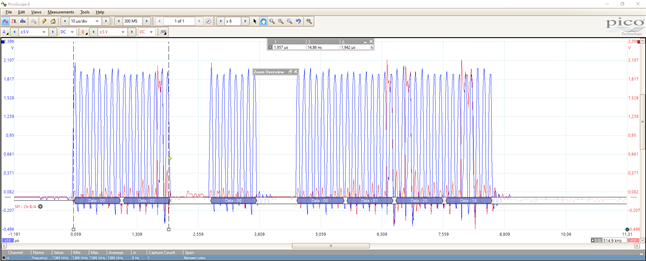Hello,
We have integrated the FATFS example as shown in the usbd_msc example project into our own firmware application. It works perfectly on the nRF52840dk and when we modify our own hardware with the MX25R6435F chip it also runs fine on our own hardware. Meaning I can mount the filesystem, list the filesystem contents, create files, read files and modify the files.
However when we try to run it on our hardware with S25FS128S (which is the flash chip we use in production) we can only (seemingly) write the filesystem and mount it. When we try to create new files they do seem to get written (the lower level qspi functions are being called) but the filesystem itself does not get updated.
We looked on the devzone and found these examples: https://devzone.nordicsemi.com/f/nordic-q-a/50534/qspi-block-device-issue-with-s25fs-flash-part and https://devzone.nordicsemi.com/f/nordic-q-a/56928/qspi-32bit-addressing-mode but I was not able to get the FS to behave properly. I am however able to use the memory in both 24 and 32bit addressing mode and get similar behavior.
This are the flash_params we used: static const nrf_serial_flash_params_t m_sflash_params[] = {
{ /*S25FS128S*/
.read_id = { 0x01, 0x20, 0x18 },
.capabilities = 0x00,
.size = 16 * 1024 * 1024,
.erase_size = 4 * 1024,
.program_size = 256,
}
};
The chip ID is being read just fine.
How can it be that i seem to be able to read and write the FS itself but I'm not able to add files, let alone modify them. We are running on sdk 15.2 with softdevice 140 btw.
Looking forward to your reply,
Best regards,
Michiel



